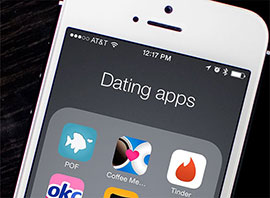According to an article published in Time Magazine a few years ago, the single busiest day on online dating sites is the Sunday following New Year’s Day.
This dating frenzy also kicks off the peak usage time of online flirting, which occurs from the first week of January until Valentine’s Day, February 14th. According to eHarmony, 40% of Americans use online dating sites, 49 million people have tried online dating with 17% of all marriages beginning there. I’ve known many happy couples that have dated, even found their life partner on such sites.
That’s the good part. The bad part is that there are some cautions here. While most profiles are legitimate there are some that are not. Some contain annoying but harmless lies. According to Phactual.com more than half of all profiles contain some element of deception. For example, more than 20% of women post pictures from when they were younger and 40% of men lie about their jobs. While problematic, these falsehoods aren’t the real danger in the online dating arena.
The term dating scammer refers to anyone that creates an entirely fictional online profile for nefarious reasons. They pose as either male or female. They create a fake name, chose a random location, and provide a false biography and pictures. The photos have been stolen from Facebook and Instagram, or were provided by someone they had deceived previously. They logged on to create a profile, just as you did. They circumvent the single profile per phone number and email address by purchasing throwaway phones and creating scores of email addresses. (I personally think that they are almost singlehandedly keeping the Tracfone company in business.) There are no sites that are 100% safe from the scammer. Free and paid alike are the hunting grounds for these deceivers.
Now, they have many reasons for doing this.
Some are sad and lonely people, but they lack confidence to speak to an individual they find attractive. Some are interested in online “sexting” (suggestive texting or nude visual content for the purpose of sexual arousal) and will try to convince you to provide explicit photos or engage in erotic conversation. Some prefer to remain anonymous because they are seeking an extramarital affair and do not wish to be identified by neightbors, colleagues, friends etc. Some are seeking a forbidden interaction, ie. an 80 year old man posing as a heterosexual 21 year old male to a straight female college student. Some have fetishes they wish to indulge and ask you to participate in, requesting pictures of your hands, feet, etc. as a sexual turn-on. Some could be targeting you to get close to your children (I definitely do not recommend posting pictures of your small children on the site with you.)
The most dangerous type is the professional online scammer trying to seduce you for money.
A bank executive revealed to me how rampant and dangerous this is. Huge sums of money are being sent via wire transfers as well as paypal, iTunes gift cards, etc. I have patients that have lost thousands, even hundreds of thousands of dollars to these criminals. Being duped is a humiliating, degrading experience. It creates self doubt about one’s ability to judge character, and whether dating is even worthwhile. It undermines self confidence and self worth.
Please send no money to any online or dating app contact, regardless of the professed reason for the request.
Next time we’ll be talking in more detail about how to spot the scammers profile.
Until then, be safe.



